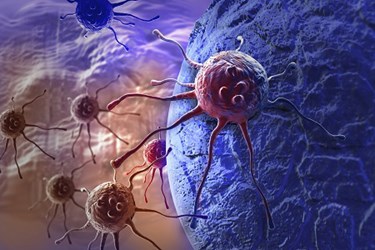Bayer And Orion Collaborate To Develop Prostate Cancer Drug

Bayer and Orion announced that the companies have entered into a global partnership to develop and commercialize the investigational compound ODM-201 for the treatment of patients with prostate cancer.
ODM-201 is a novel androgen receptor (AR) inhibitor designed to stop the growth of castration-resistant prostate cancer (CRPC). The compound is different from other drugs as it does not enter the brain while blocking AR nuclear translocation in non-clinical models of the disease.
Under the terms of the agreement, the companies will jointly develop ODM-201. Bayer will shoulder the major share of future development costs and will commercialize the compound worldwide. Orion has the option to co-promote the drug in Europe and is eligible to receive substantial royalties on product sales.
Orion and Bayer will jointly start clinical development of ODM-201 to investigate the drug’s efficacy and safety in patients with non-metastatic castration-resistant prostate cancer (nm-CRPC) this year. Orion will be responsible for manufacturing of the ODM-201. As a result of the agreement with Bayer, Orion has updated its full year outlook estimate for 2014.
Dr. Reijo Salonen, SVP of R&D at Orion said the partnership will enable the development of a potential treatment for patients who have prostate cancer, which is the second leading diagnosed malignancy in men around the world. The standard treatment of hormonal deprivation allows long-lasting and effective management of cancer-related symptoms in the disease’s stages. However, in some patients the disease will progress and turn castration-resistant, characterized by persistent and high level AR function. CRPC has also been observed to resist traditional anti-androgens such as bicalutamide.
Dr. Joerg Moeller, Member of the Bayer HealthCare Executive Committee and Head of Global Development, said, “We see in ODM-201 a potential new treatment for patients with high risk non-metastatic castration-resistant prostate cancer and are looking forward to developing this promising compound. From a clinical perspective, ODM-201 has the potential to complement our portfolio in prostate cancer and enables us to deliver new treatment options for patients who desperately need them.”
